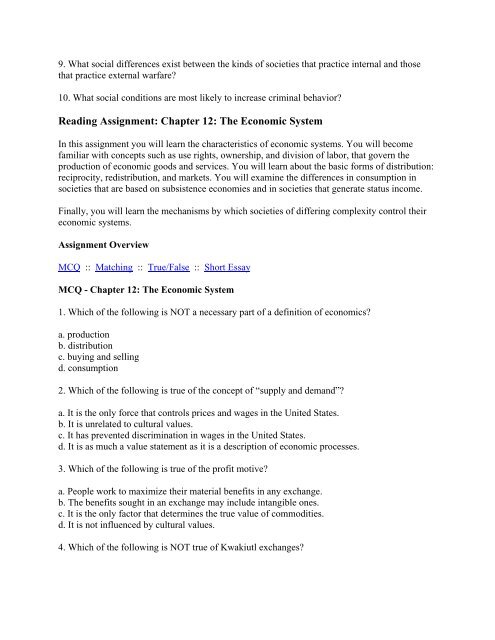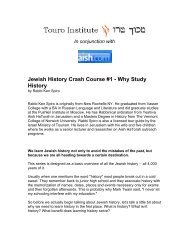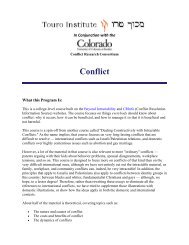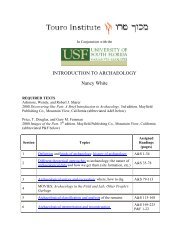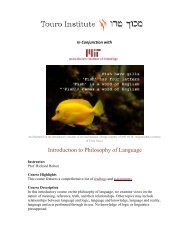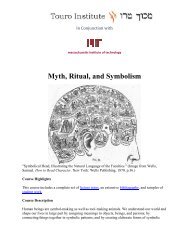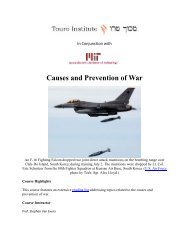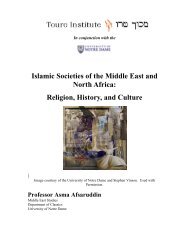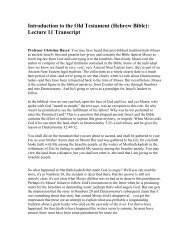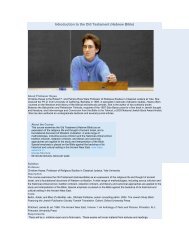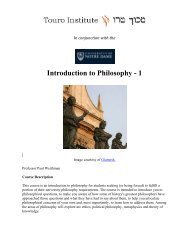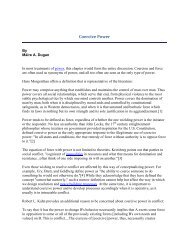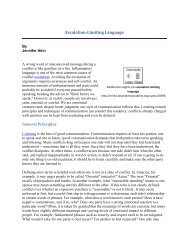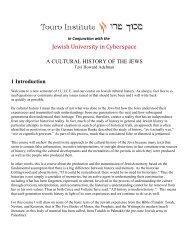In Conjunction with Cultural Anthropology - Touro Institute
In Conjunction with Cultural Anthropology - Touro Institute
In Conjunction with Cultural Anthropology - Touro Institute
Create successful ePaper yourself
Turn your PDF publications into a flip-book with our unique Google optimized e-Paper software.
9. What social differences exist between the kinds of societies that practice internal and those<br />
that practice external warfare?<br />
10. What social conditions are most likely to increase criminal behavior?<br />
Reading Assignment: Chapter 12: The Economic System<br />
<strong>In</strong> this assignment you will learn the characteristics of economic systems. You will become<br />
familiar <strong>with</strong> concepts such as use rights, ownership, and division of labor, that govern the<br />
production of economic goods and services. You will learn about the basic forms of distribution:<br />
reciprocity, redistribution, and markets. You will examine the differences in consumption in<br />
societies that are based on subsistence economies and in societies that generate status income.<br />
Finally, you will learn the mechanisms by which societies of differing complexity control their<br />
economic systems.<br />
Assignment Overview<br />
MCQ :: Matching :: True/False :: Short Essay<br />
MCQ - Chapter 12: The Economic System<br />
1. Which of the following is NOT a necessary part of a definition of economics?<br />
a. production<br />
b. distribution<br />
c. buying and selling<br />
d. consumption<br />
2. Which of the following is true of the concept of “supply and demand”?<br />
a. It is the only force that controls prices and wages in the United States.<br />
b. It is unrelated to cultural values.<br />
c. It has prevented discrimination in wages in the United States.<br />
d. It is as much a value statement as it is a description of economic processes.<br />
3. Which of the following is true of the profit motive?<br />
a. People work to maximize their material benefits in any exchange.<br />
b. The benefits sought in an exchange may include intangible ones.<br />
c. It is the only factor that determines the true value of commodities.<br />
d. It is not influenced by cultural values.<br />
4. Which of the following is NOT true of Kwakiutl exchanges?


